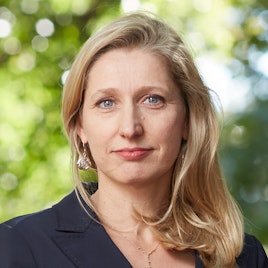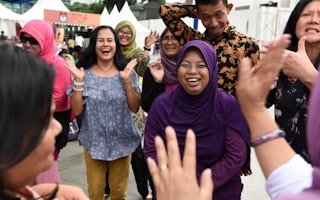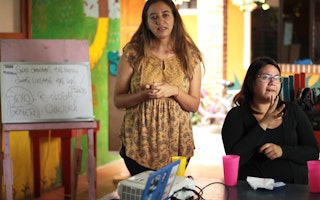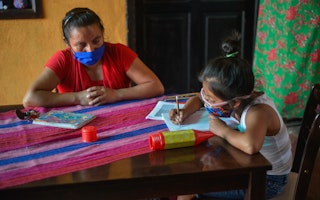Remembering a Fierce Champion of Disability Rights
By Tirza Leibowitz & Emily Martinez

Spending time around Judy Heumann was always a gift—not because she regaled you with stories of her past, though she had plenty of stories to tell. Her humility concealed the extraordinary impact she had on the lives of countless people all over the world.
You wouldn’t necessarily know that she had to fight just to get an education, blocked from admission to kindergarten by a principal who deemed her a “fire hazard.” That she had to battle society’s intention to segregate her throughout her school years—even when she fought to become the first teacher in New York City who used a wheelchair in 1970 after being denied her license due to her disability.
You wouldn’t necessarily know that she led protests with fellow activists to pressure a reluctant federal government to overcome arguments about “prohibitive” costs and sign into law trailblazing disability rights protections, some of the first of its kind in the world.
Or that as the State Department’s special advisor on disability rights during the Obama Administration from 2010 to 2017, she made U.S. foreign policy a tad more honorable by making disability rights a part of it.
Heumann, who died March 4 at the age of 75, wouldn’t be the one telling you about the generations of disability activists she inspired and mentored throughout her life around the world, from Kenya to China to the United States. Or how she supported those advocates with a spirit of generosity to persevere when faced with the denial of fundamental rights and callous neglect, and free persons with disabilities from “civil death” and oppression all too familiar to people with disabilities all over the world.
With her humility and grace, you wouldn’t know any of this from her.
What we did hear from Judy, in the precious opportunities we at the Open Society Foundations had to tap into her wisdom and experience, was the insistence that our work on disability rights inform and be informed by the deep need to reenvision democracy to deliver for all.
Heumann expected that institutions applying themselves toward democratic values and human rights, including our own, become literate in the struggles of this vast community and make space for this incredibly rich agenda in our own efforts to advance open societies.
She pushed us not to silo our work on disability, and instead converge across movements to tackle wicked problems facing all communities forced to the margins of society through oppression and exclusion. In fact, our work makes clear that life does not easily sort into categories—from addressing how disability and race merge to put people of color with disabilities at the highest risk of police violence, to addressing the need to dismantle the institutionalization of children with disabilities in any effort to rebuild Ukraine, to ensuring that the right to vote means voting rights sans capacity-based exclusions.
Heumann set a bold agenda for all of us and did so with passion, commitment, and kindness. She combined a vision for the change so needed in our societies with the pragmatism and collaborative spirit to realize it. As she was memorably quoted in the Oscar-nominated documentary Crip Camp, “we will no longer allow the government to oppress disabled individuals.”
This is the legacy that Judy has left us. Are we up for the challenge?
Lu Han, program manager with Open Society’s Office of Vice President, Global Programs, also contributed.

Tirza Leibowitz is division director of Justice at the Open Society Foundations.

Emily Martinez is acting executive director of Global Programs at the Open Society Foundations.


